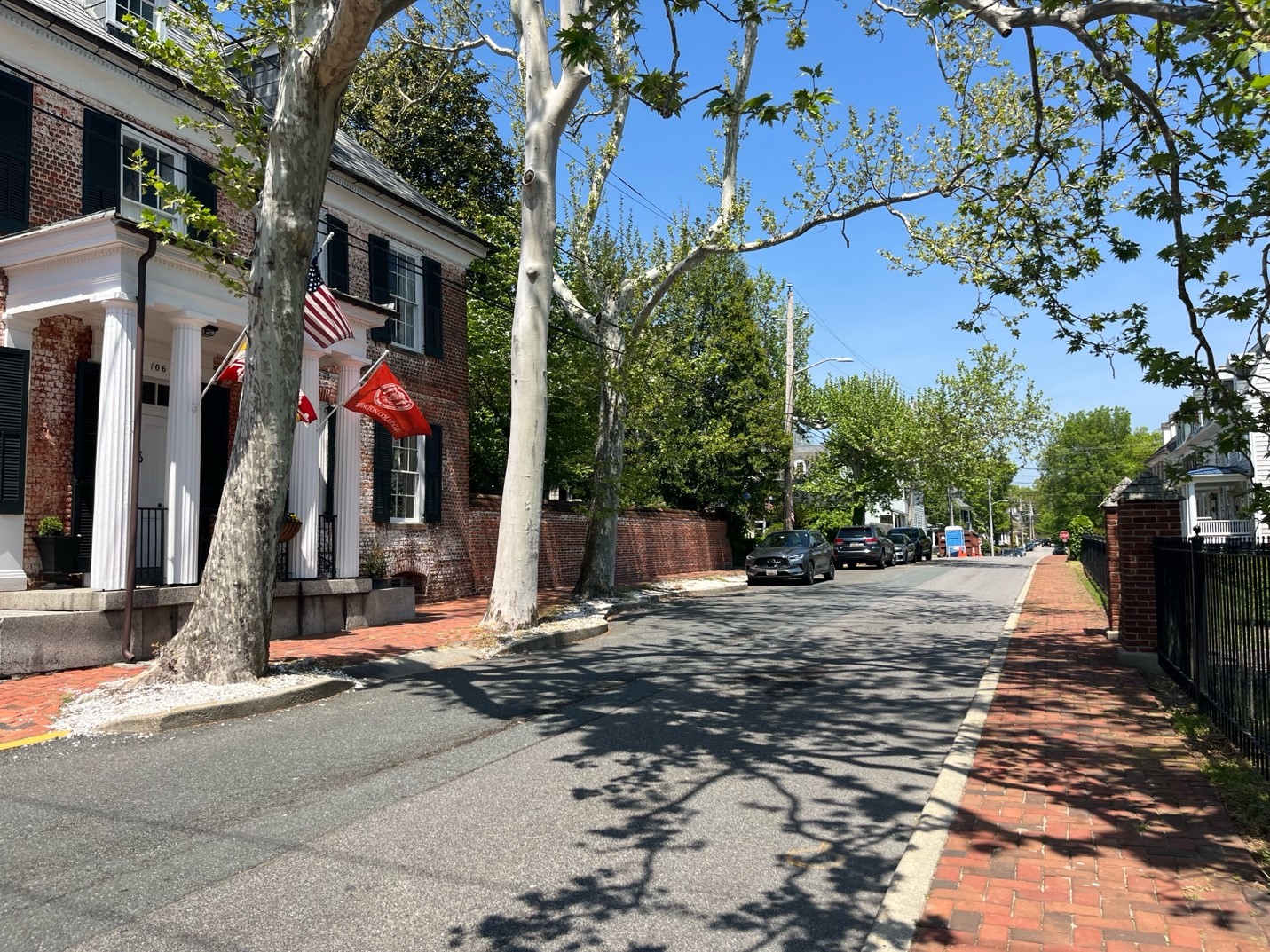CHESTERTOWN — The mayor of Chestertown, a quaint and historic city on the Eastern Shore, is going to battle with Kent County for what he considers to be the unfair treatment of his constituents. David Foster, the mayor, says his residents are double-taxed.
The state of Maryland passed legislation in 1986 that established a system for counties to provide some type of “tax set-off” for municipalities that pay for their own police, firefighters, parks and road maintenance and therefore don’t use many county services. In contrast, non-municipalities — mostly smaller unincorporated communities outside of cities — are totally dependent on the county for services.
The tax set-off can be in the form of a tax rebate paid directly to municipalities, or a discount to the county property tax rate. Some counties are required to provide a tax-set off; most others are not required but do so anyway in keeping with the legislation.
In fiscal year 2023, 18 counties in Maryland provided some type of tax set-off and two counties didn’t have municipalities, according to a report by the Office of Legislative Services. Only three counties, including Kent, did not provide a set-off to its municipalities. As a result, residents of Chestertown pay between 10% and 15% more in property taxes than non-municipalities, according to Foster, even though Chestertown residents have lower average incomes.
“We believe that there are three major problems with the current issue,” said Foster. “There’s an equity problem, it’s an economic development problem and an environmental problem.”
The equity problem stems from the income divide between Chestertown and the smaller, but more affluent, unincorporated towns nearby. Chestertown’s median household income was $44,665 in 2021, according to the Census Bureau. Meanwhile, the town of Worton, which is four miles north of Chestertown, had a median household income of nearly $95,000 and Kennedyville, which is eight miles away, has a median household income of $123,000. Both are designated as unincorporated rural farming communities but are also dotted with mansions spread across multiple acres. The towns, along with others in Kent where fishing and hunting are common activities, have become popular as vacation-home communities for affluent families from Washington, Baltimore, Annapolis and New York.
Chestertown, Kent’s county seat, is often named one of the most picturesque cities on the Eastern Shore, noted for its brick sidewalks and historic homes that line the waterfront. Located on the western shore of the Chester River, the town was originally an English colony when it was founded in 1706. During colonial times, Chestertown was a bustling shipping hub and trading port, second only to Annapolis. By the late 1800s, most trading and port activity had moved to Baltimore.
Today, Chestertown’s largest employer is Washington College—a private liberal arts school with about 1,000 students—and its economy is reliant on tourists who stroll the city’s artsy downtown, antique stores and shops.
But recruiting new businesses to town has been difficult, says Foster, due to the tax issue. Some companies that consider locating to Chestertown, change course when they discover the double tax on property.
“If you’re penalizing the town, making their taxes…higher, of course that’s going to encourage people to build just outside,” Foster said. And by pushing businesses outside of the municipality, “it encourages sprawl, it’s also anti-environmental.”
Thomas Luke Spreen, an assistant professor at the University of Maryland’s School of Public Policy, recently completed a study for the National Center for Smart Growth about the property tax issue in Kent County. He estimates that Chestertown should receive an annual tax set-off between $600,000 and $900,000.
“If you live in a municipality and you were to call 911…the police response would probably be handled by the municipal police department rather than a county police department,” said Spreen. “Therefore, it does not make sense for a resident of a municipality to be paying property taxes to the county for that service. So, in absence of a tax set-off…it is conceivable that people in municipalities are paying twice for public service.”
But Kent County officials are pushing back. County Commissioner Ronald Fithian said that while Kent County does not offer tax set-offs, it provides other financial supports. For example, Kent allows Chestertown and other municipalities to keep all the revenue from hotel taxes.
The county also supplies payments directly to the Chestertown Fire Department, something not every county does. Chestertown also received high-speed internet throughout the whole town, for which the county paid.
“I think the towns in Kent County are treated very, very well by the county,” Fithian said. “But just not in the name of a tax differential.”
Jamie Williams, the director of Kent County’s Economic and Tourism Development, doesn’t believe that Chestertown is at a disadvantage in terms of economic development. Williams wrote in an email to Capital News Service that “there has been more commercial development, businesses open, and new homes built in Chestertown than anywhere else in Kent County combined.”
Foster disagrees, but remains hopeful that Kent county officials will change the tax structure and help Chestertown attract additional businesses. “Businesses are most likely to want to locate in or near a municipality,” said Foster. “Then we’ve got to help them do that.”

